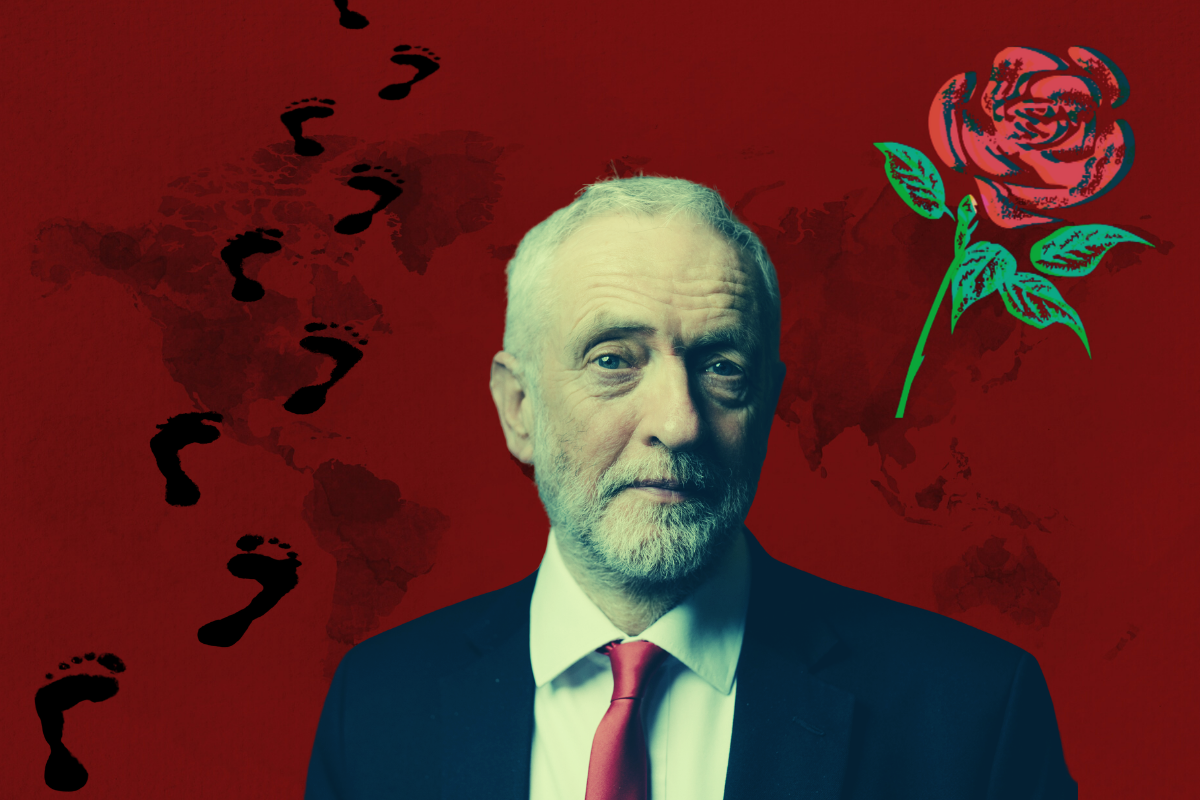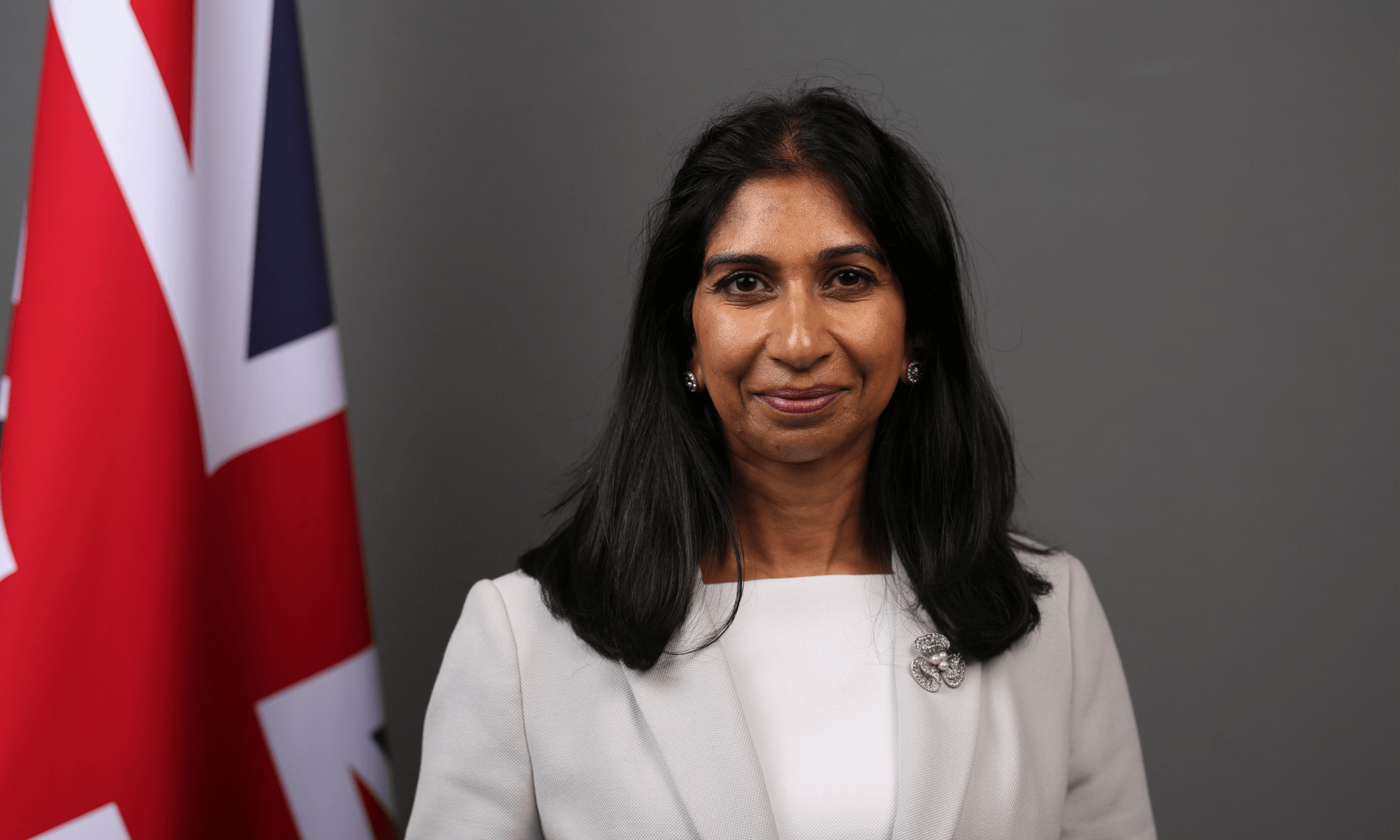
Credits: Canva / Flickr
This week migrants need safer travel routes and Jeremy Corbyn has his final PMQs
In this week's Race Review we speak to writers and activists about campaigning for safer migration routes around the world and discuss why we must continue to remember the work of our predecessors.
Sana Noor Haq
30 Mar 2020
Trigger warning: death, suffocation
I hope you’re doing well this week. In today’s edition of Race Review, we’re mulling over Jeremy Corbyn’s farewell speech in Westminster and discussing why we can’t stop campaigning for safer migration routes.
REFLECTION: Why we need to honour our predecessors
This week we’ve seen the Tories make multiple NHS-related blunders, No 10 refusing EU coronavirus aid due to bad blood and policemen sending out threatening tweets, seemingly drunk on power.
In other news, on 25 March Jeremy Corbyn gave an inspirational farewell in Parliament. During what would be his final speech on Wednesday’s session of Prime Minister’s Questions, the Labour leader showed no signs of expelling his loyalty to the party.
Speaking directly to Boris Johnson, he said “No one is an island and no one is self-made. The well-being of the most wealthy depends on the outsourced worker cleaning their office… we have to recognise the value of each other and the strength of a society which cares for each other and cares for us all.”
Even though many of us will be sad to see Jeremy leave his post, it’s important that we take time to celebrate and appreciate the work that he has achieved so far, promoting the welfare of marginalised people in Britain alongside his Labour peers.
Oftentimes, we are so committed to the work we’re doing at present that we forget to take a step back and appreciate the progress that our predecessors have made. Now that we have more time to reflect, let’s take their work in our stride and keep pushing forward.
REPORT: 64 people die as policymakers continue to put the lives of migrants at risk
Last week, we saw another incident of migrants being let down by policymakers as a result of the lack of safe migration routes available along national borders.
It was reported that migration officers in Mozambique found 64 bodies in a shipping crate that was attached to the back of a lorry. Officials said that the deceased, who most likely passed away from suffocation, were in a vehicle that had crossed from Malawi to Mozambique along a well-known trafficking route to South Africa.
According to the provincial director of health Carla Mosse, officials had stopped the lorry in a town in Mozambique called Moatize. When immigration first inspected the lorry, 14 occupants were found to be alive. Even though autopsies are yet to be carried out on the people in the container, the likely cause of death is said to be asphyxiation.
From the scant coverage that this story has gained so far, it’s clear that policymakers are unwilling to take responsibility for the deaths of these 64 people. However, the enforcement of tight restrictions by governmental bodies means that underground migration routes along national borders continue to be unnecessary sites of bloodshed where people in vulnerable positions are treated exploitatively.
Juliana da Penha is the founder of Migrant Women Press, a platform that aims to share the perspectives of migrant women whilst taking into the account the intersections of gender and race. Speaking about the way the story has been reported, she said: “When news outlets refer to these people as ‘illegal migrants’ they are immediately criminalising what they are doing.
“They’re not being treated as human beings.”
Increased border surveillance around the world has meant that people are forced to take routes that are unvetted. Therefore, they are more likely to find themselves in a position where their lives are at risk.
Nazek Ramadan is the director of Migrant Voice, an organisation that aims to amplify the voices of migrant people in the media and counter xenophobia.
She said: “Today’s obsession with borders and the primacy of the nation state mean that, all too often, states demonise and scapegoat people who cross those borders. We need a worldwide change of perspective, a recognition that migration is normal and that people who cross borders aren’t a threat – ultimately, we need safe, legal routes.
“This tragedy will likely change nothing. But future deaths aren’t inevitable if governments start working together to create those vital routes to safety.”
ICYMI
• In yet another example of marginalised communities taking the brunt of government-induced healthcare restrictions during the pandemic, Texas and Ohio have both classified abortions as non-essential medical procedures that must be delayed in place of treating COVID-19 patients.
• Fears are running high about the spread of the coronavirus in Mogadishu’s refugee camp in Somalia. The camp hosts approximately 3000 families, many of whom have been displaced following intensified US airstrikes. Water runs scarce, few can afford soap and social distancing isn’t an option.
• India’s first trans pilot has been banned from flying for six months after being told that his medical appointment must clear him of gender dysphoria, essentially deeming it an illness. After qualifying as a pilot, Harry left his hometown in Kerala whilst escaping transphobic attacks at the age of 19.
• In the US, student loan payments will be suspended for six months as a result of job losses and overall economic decline in relation to the coronavirus. The relief bill, which passed through Congress and was signed by Trump on Friday, means that lenders must stop all payments under 30 September.
• Measures across the world urging people to stay at home amidst the coronavirus means that people calling about domestic violence have spiked, sparking concern over the increased risk of domestic abuse incidents. Australia and France have reported a growth in domestic violence during the outbreak.
• Peaceful Shaheen Bagh protestors in India, led predominantly by Muslim women, have had their campaigning hindered due to country-wide restrictions aiming to curb the spread of the coronavirus. Condemning Modi’s Citizenship Amendment Act, the protests have been going on for 100 days.
• Last week, the government asked for 250,000 volunteers to support the NHS as COVID-19-related deaths in the UK continue to spike. The health secretary Matt Hancock called healthy volunteers to support the service, again illustrating how decade-long austerity has been putting lives at risk.
• Kayla Williams, a 36-year-old mother, passed away in her flat one day after calling 999 with symptoms of Covid-19, when she was told to look after herself at home. Her husband Fabian said that a paramedic who came to the flat said she was “not a priority” and therefore couldn’t be taken to hospital.
• The Home Office has delayed evictions of asylum seekers for three months in order to try and prevent the spread of the coronavirus. No one will be removed from accommodation until at least June, even if their appeal or claim has been rejected.
• Local NGOs in Colombia have warned that death squads are taking advantage of coronavirus lockdowns to murder rural activists, with three dying most recently. If they do not self-isolate, they are at risk of infection. But if they abide by lockdown rules, they are sitting targets.
• In Brazil, those who are self-quarantine have expressed frustration at President Jair Bolsonaro’s handling of the pandemic by banging their pots and pans together on balconies. Millions of protestors in Rio de Janeiro and São Paulo stood at their windows, calling on him to resign.
• A transgender support group in Cambridge called Diamonds says that the closure of LGBTI+ pubs means that members have fewer safe spaces to meet. The group has made history over the past two decades, continuing to act as a lifeline to trans and non-binary folk to share company.
• Reports of a sexual blackmail ring that operated on the app Telegram in South Korea has incited outrage. The man who allegedly ran the online network had taken at least 58 women and 16 girls into “virtual enslavement”, sending them degrading and sometimes violent sexual images of themselves.
GOOD NEWS OF THE WEEK
Jessamyn from @theunderbellyyoga is offering a free two-week trial to new subscribers amidst coronavirus lockdowns. If you sign up, you’ll be able to livestream yoga classes with Jessamyn, a body positivity advocate and yoga teacher who aims to promote versatile workouts that are accessible to as many people as possible.

‘White men can’t always edit Black stories’ and 5 other learnings from our Spotify podcast roundtable

Join gal-dem and Spotify for The Creator’s Table and hear the voices of black women in podcasting

Join gal-dem’s audiobook club and discover the best new Black authors publishing banging books in 2020






